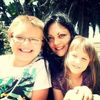Breastfeeding and Tooth Decay
Breast milk has immune factors that lessen the presence of unfriendly bacteria, and laboratory tests show human milk does not promote tooth decay.

Is it Possible for Breast Milk to Cause Tooth Decay?
‘It would be evolutionary suicide for breast milk to cause decay…” La Leche League
What Causes Tooth Decay?
- Sugar intake: Tooth decay is mainly caused by too much sugar. Sugar helps bacteria grow, and the acids that bacteria make cause the teeth to decay. Many liquids contain sugar, including milk, formula, and fruit juices.
- Strep mutans enter a baby’s mouth.
- Salivary disorders.
- Maternal smoking during pregnancy.
- Bad dietary habits of the family.
- Bad oral and overall hygiene of the family.
- Family genetics (such as the presence of enamel defects).
- Other conditions include low birth weight (including prematurity), malnutrition, asthma, recurrent infections, and chronic diseases.

Does Breast Milk Contain Any Components That Cause Tooth Decay?
No, it does not.
Breast milk has immune factors that lessen the presence of unfriendly bacteria, and laboratory tests show human milk does not promote tooth decay.
The contents of Breast Milk:
- Proteins: The proteins in breast milk are more easily digested by babies than any other type of protein. Examples:
- Taurine: Helps to develop the brain and eyes.
- Lactoferrin: The highest concentration in colostrum but in breast milk throughout the whole first year. It protects against bacteria such as staphylococci and E. coli.
- Self-Digesting Fats: Fat is an essential energy source for babies and is necessary for brain development. Examples:
- Lipase.
- Linoleic and linolenic.
- Docosahexanoic acid (DHA).
- Arachidonic acid (AA).
- Hormones and Enzymes: Hormones and Enzymes influence the baby’s growth, metabolism, and physiology. Examples:
- Epidermal Growth Factor: Helps maintain the development of tissues in the digestive tract and other places.
- Lysozyme: It’s a natural form of protection from infectious organisms like Salmonella and E.coli.
- Vitamins and Minerals: Calcium, phosphorus, and iron are three essential minerals in breast milk. Breast milk also contains vitamin C, which increases the absorption of iron.
- Antibodies: An antibody recognizes and helps fight infections and other foreign things in the body. All types of antibodies are found in breast milk, with the highest concentration in colostrum.

Tushbaby Hip Carrier
With its ergonomic design and comfortable waistband, Tushbaby provides optimal support for both you and your baby, allowing for bonding on the go. Say goodbye to shoulder and back pain from traditional carriers, as Tushbaby evenly distributes your baby's weight, relieving strain and promoting better posture.
Breastfeeding and Tooth Decay Conclusion
Breast milk by itself is the healthiest food for babies’ teeth. It tends to slow bacterial growth and acid production.
However, when breast milk is given with sweetened drinks or foods, the rate of tooth decay can be quicker than with sugar alone.
Breast and cow's milk contain lactose sugar, which gives food to cavity-causing bacteria when allowed to sit in the mouth, but it doesn’t mean cavities can develop on breast milk alone.
Then again, formula is cavity-promoting as it contains more sugars other than lactose.
'Breastfeeding may act preventively and inhibit the development of nursing caries in children.' - Breasfeeding-problems.com
